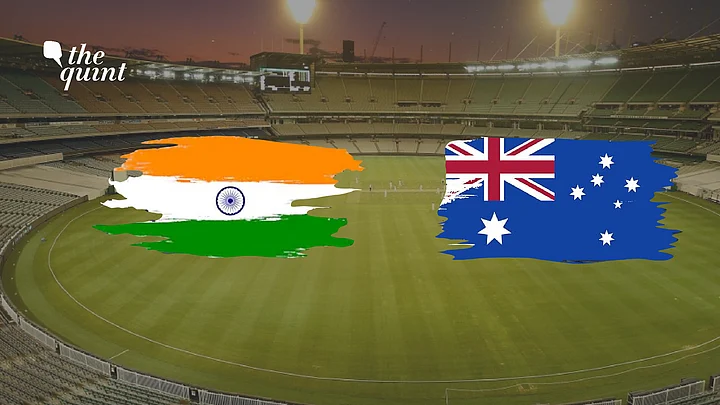The just concluded India-Australia third cricket test at Sydney will be long remembered for Hanuma Vihari and Ravichandran Ashwin’s patient and gritty batting to enforce a draw. Vihari’s performance was special for he played on despite having injured his hamstring in the early part of his innings; as play progressed, he could only hobble. Ashwin displayed amazing will power to set aside the agony of back pain to soldier on till the end of the match.
Unfortunately, this match will also be recalled for the racist taunts by a section of the spectators against the Indian fast bowlers Mohammed Siraj and Jasprit Bumrah when they were fielding near the fence. According to some reports, Siraj was called “brown dog” and “big monkey”.
The Indian team was absolutely right in complaining against these hateful comments. Play was suspended and the police removed the persons, who hurled these racist abuses.
India Should Not Give Free Pass to Racism Against Indians Anywhere
The Australian cricket authorities have reportedly apologised to the Indian team. They have assured that the racist spectators will face action. Not only the BCCI but the Indian High Commissioner should monitor this case to ensure that the Australian police do not brush the incident under the carpet. The offenders should be effectively prosecuted in court.
India has a proud record of leading the international struggle against racism. That approach mandates that India’s diplomatic representatives should never ignore its occurrence against any Indian national abroad.
It cannot be that India is in the forefront against racist policies or actions when others are involved and passive when it is directed against its own nationals. This incident should be pursued to the end to ensure that justice is done.
India-Australia relations are on an upswing. Both countries have developed vigorous ties in trade and are now entering into a partnership along with like-minded democracies that are apprehensive of the threats posed by an aggressive China. The Quad is a manifestation of similar thinking in the security sector.
Australia’s Racist Attitude Towards India is Nothing New
Not so long ago, though, Australia showed a complete disdain for India’s security concerns. In the wake of the nuclear tests of 1998, many countries lectured and sanctioned India but Australia’s actions were particularly nasty. For instance, it not only sent back Indian military personnel who were pursuing courses in Australian military establishments it did so very rudely.
Buzz in Indian official circles then indicated that in some cases Indian officers were pulled out of class rooms just to publicly convey Australian policy. This boorish and insulting behaviour should be remembered for it is indicative of social attitudes of the Australian establishment.
Would it have shown its unhappiness against the actions of a fellow Caucasian country in the manner in which it treated India?
The question is if in the past two decades since the Australian reaction to the 1998 events its officialdom has changed its attitudes. Certainly, social attitudes take a long time to evolve but the state has a duty to actively seek to change them through the education system and targeted social programmes. Are the Australian authorities doing so?
Colonialism’s Culture of Superiority Seen in Sydney, Yet Again
The fact is that colonialism bred a culture of superiority in the European people, especially those in the colonies. European expansion and rule almost all over the world were based on dramatic advances in science and technology which led to the industrial revolution. This made the European people or those of European descent feel that they were inherently superior to those whom they had conquered.
Since the Europeans were white skinned and the conquered ‘natives’ brown or black, they associated the former with a higher position in the evolutionary ladder. Thus, came the notion of the ‘white man’s burden’ to rule and improve the lot of ‘lesser breeds without the law’.
These complexes of white superiority became deep seated and are reflected in racist abuses which are very often use colour to distinguish and disparage as seen in the Sydney cricket ground.
Institutionalised or legally sanctioned racism is no longer present but it must be remembered that it took a great struggle to end it.
Mahatma Gandhi’s India Must Always Watch Out for Resurgence of Racism
It is hard to believe that segregation based on race was going on in parts of the United States till the mid-1960s. The Civil Rights movement led by Martin Luther King, who was inspired by Mahatma Gandhi, led to its demise but racist social attitudes have not gone away. These are behind the harsh treatment of African Americans by the mainly white police forces in the US. This was vividly illustrated in the killing of George Floyd in May last year in Minneapolis. The widespread agitation that followed brought to the fore the continuing contradictions because of race in the US.
The worst example of legal racism was the apartheid system in South Africa which formally ended only in 1994. That it continued till then was in small measure to US and European resistance to effectively pressure the racist South African government to end the system. Nelson Mandela, who spent twenty-seven years in jail and is an inspiration to humanity, was also a follower of Gandhiji. India’s role in the international struggle against apartheid was exemplary.
India must always remain vigilant against any manifestation of racism. It is therefore essential that the Sydney case be effectively followed by the BCCI and the Ministry of External Affairs.
(The writer is a former Secretary [West], Ministry of External Affairs. He can be reached @VivekKatju. This is an opinion piece, and the views expressed above are the author’s own. The Quint neither endorses nor is responsible for them.)
(At The Quint, we question everything. Play an active role in shaping our journalism by becoming a member today.)
